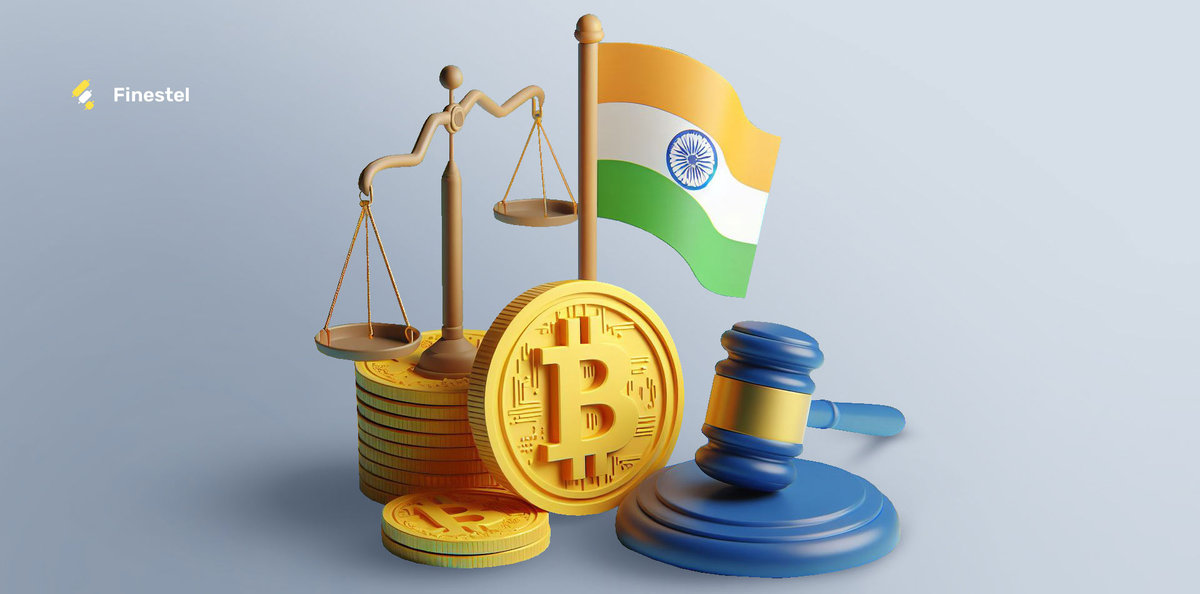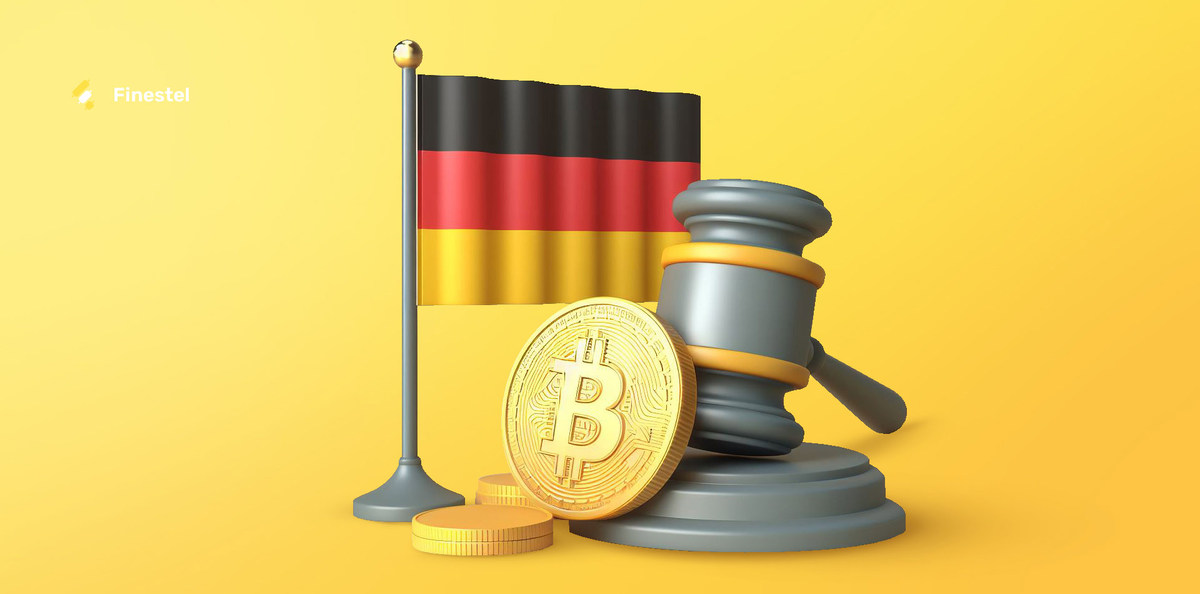As cryptocurrencies captivate the imaginations of investors and revolutionaries alike, a pivotal question lingers – are these virtual assets and their trailing economic emanations legal? The answer depends on where you reside on the planet.
Navigating the nebulous and variegated regulations governing cryptocurrencies internationally constitutes an ongoing challenge. Some nations have crafted clear guidelines and frameworks encompassing the proliferating crypto activity within their borders. Others rely on piecemeal extensions of legacy laws insufficiently tailored to digital assets, hindering innovation. Several regimes still deliberated policy responses even as crypto adoption entrenches their populace and financial infrastructure.
This article by Finestel illuminates the nuances that determine the legality of cryptocurrency trading and ownership spanning key global jurisdictions. By clarifying the official rules and restrictions currently enforced on virtual currencies, prospective investors can appraise risks and accessibility accordingly. The analyses also trace intra-governmental complexities behind several counties’ equivocal or contrasting administrative stances.
Is Crypto Trading Legal in Different Countries?
Cryptocurrencies are digital or virtual currencies that use cryptography to secure and verify transactions. They are decentralized, meaning they are not controlled by any central authority or intermediary. Cryptocurrencies have gained popularity in recent years due to their potential to offer faster, cheaper, and more transparent alternatives to traditional payment systems and financial services.

However, the legal status of cryptocurrency trading varies across different countries and jurisdictions. Some countries have embraced cryptocurrencies and provided clear and comprehensive regulatory frameworks for them, while others have banned or restricted them due to concerns over money laundering, tax evasion, consumer protection, and financial stability. This article will provide an overview of the cryptocurrency regulations in six countries: India, Nigeria, the Philippines, Germany, Singapore, and the UAE.
Read more to discover the legal status of copy trading and whether it is considered halal or haram.
Is Crypto Trading Legal in India?
India is one of the largest and fastest-growing markets for cryptocurrencies, with millions of users and hundreds of startups involved in the sector. However, the legal status of cryptocurrency trading in India remains unclear and uncertain, as the government and the central bank have issued conflicting and ambiguous statements and policies over the years.

Conflicting Statements from RBI and Supreme Court
In 2018, the Reserve Bank of India (RBI) issued a circular that prohibited banks and other regulated entities from dealing with or providing services to any individual or business dealing with or settling cryptocurrencies. This effectively cut off the access of cryptocurrency exchanges and users to the formal banking system, forcing them to rely on peer-to-peer platforms, cash transactions, or foreign bank accounts.
Proposed Ban in Draft Cryptocurrency Bill
However, in 2020, the Supreme Court of India quashed the RBI circular, ruling that it was unconstitutional and disproportionate. The court held that cryptocurrencies are not illegal in India and that the RBI had not demonstrated any harm or damage caused by them to the banking system or the economy. The court also noted that the RBI had not issued any formal ban on cryptocurrencies, but only a ring-fencing measure to protect the regulated entities from the risks associated with them.
Following the Supreme Court verdict, the cryptocurrency industry in India witnessed a resurgence of activity and growth, as exchanges and users regained access to banking services and confidence in the sector. However, the regulatory uncertainty and ambiguity persisted, as the government and the RBI continued to express their reservations and concerns over cryptocurrencies.
In 2019, an inter-ministerial committee appointed by the government had submitted a draft bill that proposed to ban all cryptocurrencies in India, except for a digital rupee issued by the RBI. The bill also suggested a jail term of up to 10 years and a fine of up to 250 million rupees (about US$3.4 million) for anyone who mines, holds, sells, transfers, issues, or deals with cryptocurrencies in any form. However, the bill has not been tabled or passed by the parliament yet, and its status and fate remain unknown.
In 2021, the government listed a new bill in the parliament’s agenda, titled “The Cryptocurrency and Regulation of Official Digital Currency Bill, 2021”. The bill’s objective was to “create a facilitative framework for creation of the official digital currency to be issued by the Reserve Bank of India” and to “prohibit all private cryptocurrencies in India”. However, the bill’s text and details have not been made public yet, and it has not been introduced or discussed in the parliament yet.
Meanwhile, the RBI has reiterated its stance that it has “major concerns” over the impact of cryptocurrencies on the financial stability and the monetary policy of the country. The RBI has also indicated that it is working on a central bank digital currency (CBDC) that would be a digital form of the Indian rupee. However, the RBI has not given any timeline or roadmap for the launch of the CBDC.
Taxation Without Clear Guidelines
In the absence of a clear and comprehensive regulatory framework, the cryptocurrency industry and users in India face a lot of challenges and risks. For instance, in 2021, the income tax department reportedly sent notices to thousands of cryptocurrency investors, asking them to disclose their transactions and pay taxes on their gains. However, there is no clarity or guidance on how to calculate and report the taxes on cryptocurrencies, as they are not recognized as legal tender, capital assets, or commodities in India.
Lack of Consumer Protection Mechanisms
Moreover, there is a lack of consumer protection and dispute resolution mechanisms for cryptocurrency users in India, as they are not covered by any existing laws or regulations. There have been several cases of fraud, hacking, theft, and scams involving cryptocurrencies in India, leaving the victims with no recourse or remedy. There have also been instances of banks and payment platforms arbitrarily blocking or suspending the accounts of cryptocurrency exchanges and users, citing the RBI circular or their own risk policies.
Therefore, the legal status of cryptocurrency trading in India is still disputed and unresolved, despite the growing adoption and demand for cryptocurrencies in the country. The government and the RBI need to provide a clear and consistent policy and regulatory framework for cryptocurrencies, that balances the interests of innovation, inclusion, and security, and that aligns with the global best practices and standards.
Is Crypto Trading Legal in Nigeria?
Nigeria is one of the leading countries in Africa and the world in terms of cryptocurrency adoption and usage. According to a report by Chainalysis, Nigeria ranked third in the world in terms of crypto adoption in 2020, behind only Vietnam and India. Nigeria also accounted for more than half of the crypto trading volume in Africa in 2020, with over US$400 million worth of transactions.

The main drivers of cryptocurrency adoption in Nigeria are the high inflation, the depreciation of the local currency (the naira), the low penetration of the formal banking system, the high cost and inefficiency of the traditional remittance channels, and the young and tech-savvy population. Cryptocurrencies offer Nigerians a way to preserve their wealth, access global markets, send and receive money across borders, and participate in the digital economy.
However, the legal status of cryptocurrency trading in Nigeria is not clearly defined or regulated. There is no specific law or regulation that governs cryptocurrencies or their activities in Nigeria. The Central Bank of Nigeria (CBN) and the Securities and Exchange Commission (SEC) are the main regulators that have issued some statements and guidelines on cryptocurrencies, but they have not provided a comprehensive or consistent framework for them.
Restrictive Stance from Central Bank of Nigeria
The CBN, which is the apex bank and the monetary authority of the country, has taken a negative and restrictive stance on cryptocurrencies. In 2017, the CBN issued a circular that warned banks and other financial institutions against dealing with or facilitating transactions involving cryptocurrencies, stating that they are not legal tender in Nigeria and that they pose significant risks to the financial system and the economy. The CBN also cautioned the public against investing or trading in cryptocurrencies, citing the volatility, the lack of consumer protection, and the potential for money laundering and terrorism financing.
In 2021, the CBN issued another circular that reiterated its position and directed banks and other regulated entities to identify and close the accounts of any individuals or entities that are involved in cryptocurrency transactions. The CBN also threatened to impose severe sanctions on any bank or financial institution that breaches the directive. This circular effectively cut off the access of cryptocurrency exchanges and users to the formal banking system, forcing them to rely on peer-to-peer platforms, cash transactions, or foreign bank accounts.
Need for Regulatory Coordination and Clarity
The CBN’s circular sparked a lot of controversy and criticism from various stakeholders, including the cryptocurrency industry, the civil society, the media, and some lawmakers. They argued that the CBN’s action was arbitrary, retrogressive, and counterproductive, as it stifled innovation, inclusion, and growth, and that it violated the constitutional rights of Nigerians to freedom of expression and association. They also pointed out that the CBN’s circular contradicted the SEC’s guidelines on cryptocurrencies, which were more progressive and supportive.
Supportive Framework from the Securities Exchange Commission
The SEC, which is the regulator of the capital markets and the securities industry in Nigeria, has taken a more positive and proactive approach to cryptocurrencies. In 2017, the SEC issued a statement that acknowledged that some cryptocurrencies may qualify as securities and that it would regulate them accordingly. In 2020, the SEC issued a comprehensive set of guidelines on the regulation of crypto assets and their activities, which came into effect in January 2021.

According to the SEC’s guidelines, crypto assets are defined as “a digital representation of value that can be digitally traded and functions as (1) a medium of exchange; and/or (2) a unit of account; and/or (3) a store of value, but does not have legal tender status in any jurisdiction.” The SEC further classified crypto assets into four categories: (1) crypto assets, such as non-fiat virtual currencies; (2) utility tokens, such as tokens that provide access to a service or network; (3) security tokens, such as tokens that have features of securities or derivatives; and (4) derivatives and collective investment schemes of crypto assets, utility tokens, or security tokens.
The SEC’s guidelines stipulate that any person or entity that issues, trades, or deals with crypto assets must be registered with the SEC and comply with its rules and regulations. The SEC also stated that it would collaborate with the CBN and other relevant authorities to ensure the effective regulation and supervision of crypto assets and their activities. The SEC also advised the public to exercise caution and due diligence when investing or trading in crypto assets, and to seek the guidance of the SEC or other competent authorities when in doubt.
Therefore, the legal status of cryptocurrency trading in Nigeria is not fully defined or regulated, as there is a lack of clarity and consistency between the CBN and the SEC’s policies and positions. While the SEC has provided a comprehensive and supportive framework for crypto assets and their activities, the CBN has imposed a restrictive and prohibitive measure that hampers the access and growth of the cryptocurrency industry and users.
There is a need for a harmonization and coordination between the CBN and the SEC, as well as other relevant stakeholders, to provide a clear and consistent legal and regulatory framework for cryptocurrency trading in Nigeria, that fosters innovation, inclusion, and security, and that aligns with the global best practices and standards.
Is Crypto Trading Legal in the Philippines?
The Philippines is another country in Asia that has shown a high level of cryptocurrency adoption and usage, especially for remittances and payments. According to a report by Statista, the Philippines ranked fourth in the world in terms of crypto adoption in 2020, behind only Vietnam, India, and Pakistan. The Philippines also recorded over US$1.5 billion worth of crypto transactions in 2020, according to Chainalysis.

The main drivers of cryptocurrency adoption in the Philippines are the high remittance inflows and outflows, the low access to the formal banking system, the high mobile and internet penetration, and the supportive regulatory environment. Cryptocurrencies offer Filipinos a way to send and receive money across borders, access financial services, and participate in the digital economy.
The legal status of cryptocurrency trading in the Philippines is relatively clear and regulated, as the government and the central bank have provided a facilitative and progressive framework for cryptocurrencies and their activities. The Bangko Sentral ng Pilipinas (BSP), which is the central bank and the monetary authority of the country, has taken the lead in regulating cryptocurrencies as remittance and payment channels, while the Securities and Exchange Commission (SEC) has taken the role of regulating cryptocurrencies as securities and investments.
Central Bank Regulations for Virtual Currency Exchanges
The BSP, which is responsible for maintaining the stability and integrity of the financial system and the payment system, has recognized cryptocurrencies as a legitimate medium of exchange and payment in the Philippines. In 2017, the BSP issued a circular that provided guidelines for the registration and operation of virtual currency exchanges (VCEs) in the Philippines. VCEs are defined as entities that offer services or engage in activities that provide facilities for the conversion or exchange of fiat currency to virtual currency or vice versa.
According to the BSP’s circular, VCEs are required to register with the BSP as remittance and transfer companies and to comply with the existing rules and regulations on anti-money laundering, consumer protection, and risk management. The BSP also requires VCEs to submit periodic reports on their transactions and activities to the BSP for monitoring and supervision purposes. The BSP also advises the public to exercise caution and due diligence when dealing with VCEs and cryptocurrencies, and to be aware of the risks and responsibilities involved.
As of April 2021, the BSP has registered 17 VCEs in the Philippines, which include some of the leading cryptocurrency platforms in the region, such as Coins.ph, PDAX, Binance, and Bitstamp. These VCEs enable Filipinos to buy, sell, and use cryptocurrencies for various purposes, such as remittances, payments, e-commerce, gaming, and donations. The BSP has also expressed its openness and interest in exploring the potential of a central bank digital currency (CBDC) in the Philippines, and has formed a committee to study its feasibility and implications.
SEC Draft Rules for Token Offerings as Securities
The SEC, which is responsible for regulating the securities and capital markets in the Philippines, has taken the approach of regulating cryptocurrencies as securities and investments, depending on their characteristics and features. In 2018, the SEC issued a draft memorandum circular that provided the guidelines for the registration and offering of initial coin offerings (ICOs) in the Philippines. ICOs are a form of fundraising that involves the issuance and sale of new crypto tokens or coins to investors.

According to the SEC’s draft circular, ICOs are required to register with the SEC and to submit a prospectus or an information memorandum that discloses the relevant information about the ICO, such as the project, the token, the issuer, the risks, and the rights of the investors. The SEC also requires ICOs to undergo an initial assessment to determine whether the token or coin qualifies as a security or not, based on the criteria of the Howey Test, which is a legal test used in the United States to determine whether an asset is a security or not.
The SEC’s draft circular also provides the guidelines for the secondary trading of crypto tokens or coins on cryptocurrency exchanges or platforms, which are required to register with the SEC as trading venues and to comply with the existing rules and regulations on securities trading, disclosure, and reporting. The SEC also advises the public to exercise caution and due diligence when investing or trading in ICOs and cryptocurrencies, and to be aware of the risks and responsibilities involved.
However, the SEC’s draft circular has not been finalized or implemented yet, and is still subject to further consultation and revision. The SEC has also issued several advisories and warnings to the public regarding some ICOs and cryptocurrency platforms that are operating without the SEC’s authorization or approval, or that are involved in fraudulent or illegal activities. The SEC has also indicated that it is working on a comprehensive set of rules and regulations for digital asset offerings (DAOs), which will cover not only ICOs, but also other forms of token offerings, such as security token offerings (STOs) and initial exchange offerings (IEOs).
Discover the list of Binance supported countries.
Gaps in Tax Rules and Consumer Protection
Therefore, the legal status of cryptocurrency trading in the Philippines is relatively clear and regulated, as the government and the central bank have provided a facilitative and progressive framework for cryptocurrencies and their activities. The BSP has recognized and regulated cryptocurrencies as remittance and payment channels, while the SEC has taken the role of regulating cryptocurrencies as securities and investments. However, there are still some gaps and challenges that need to be addressed, such as the taxation, consumer protection, and dispute resolution mechanisms for cryptocurrency users and traders in the Philippines.
The Outlook Ahead – Cautious Yet Accelerating Normalization of Cryptocurrency Trading Regulation and Legality
Despite checkered progress globally, mounting evidence indicates gradual normalization and regulatory clarity for legal cryptocurrency trading in pace with deeper adoption. But substantial contrast between progressive regimes intended on capturing digital asset potentials and reactive nations or ones with significant legacy finance sector interests persists for now.
Yet real-world blockchain and crypto catalytic impacts seem destined to erode barriers once intergovernmental consensus-building coalesces. Thus the road ahead points to cryptos inhabiting a legal territory better shielded via pragmatic rulemaking welcoming ethical innovation upon robust consumer safeguards.
FAQ
Is crypto trading legal in Australia?
Yes, crypto trading is legal in Australia. The Australian government recognizes cryptocurrencies as legal property and allows their use for payments and investments. Crypto exchanges and service providers must register with the Australian Transaction Reports and Analysis Centre (AUSTRAC) and comply with anti-money laundering and counter-terrorism financing (AML/CTF) rules. Crypto gains are subject to capital gains tax and goods and services tax (GST) in Australia.
Is crypto trading legal in Brazil?
Yes, crypto trading is legal in Brazil. The Brazilian government does not regulate cryptocurrencies directly, but treats them as assets or goods that can be subject to taxation and reporting obligations. Crypto exchanges and service providers must follow the rules of the Brazilian Securities and Exchange Commission (CVM) and the Central Bank of Brazil (BCB) when dealing with crypto assets. Crypto gains are subject to income tax and financial transaction tax in Brazil.
Is crypto trading legal in Russia?
Partially, crypto trading is partially legal in Russia. The Russian government passed a law in 2020 that recognizes cryptocurrencies as property, but prohibits their use as a means of payment. Crypto exchanges and service providers must register with the Federal Financial Monitoring Service (Rosfinmonitoring) and comply with anti-money laundering and counter-terrorism financing (AML/CTF) rules. Crypto gains are subject to income tax and personal property tax in Russia.
Is crypto trading legal in South Korea?
Yes, crypto trading is legal in South Korea, but with some restrictions. The South Korean government recognizes cryptocurrencies as virtual assets, but not as legal tender. Crypto exchanges and service providers must register with the Financial Services Commission (FSC) and comply with anti-money laundering and counter-terrorism financing (AML/CTF) rules. Crypto gains are subject to income tax and capital gains tax in South Korea.
Is crypto trading legal in Turkey?
No, crypto trading is not legal in Turkey. The Turkish government banned the use of cryptocurrencies as a means of payment in April 2021, citing risks of fraud, money laundering, and volatility. Crypto exchanges and service providers are also subject to strict regulations and oversight by the Central Bank of the Republic of Turkey (CBRT) and the Banking Regulation and Supervision Agency (BDDK). Crypto gains are not subject to taxation in Turkey.
Which countries have banned cryptocurrency?
A: According to the Atlantic Council’s Cryptocurrency Regulation Tracker, eight countries have generally banned cryptocurrency: Algeria, Bolivia, Egypt, Iraq, Morocco, Nepal, Pakistan, and Vietnam. These countries prohibit the use, trade, or mining of crypto assets within their borders.
Which countries have the most favorable crypto regulations?
This is a subjective question, but some possible candidates are Japan, Singapore, Switzerland, and Estonia. These countries have adopted clear and comprehensive legal frameworks for crypto assets, allowing them to operate as legal tender, securities, or commodities. They also have supportive tax policies, licensing regimes, and innovation hubs for crypto businesses.
How is cryptocurrency taxed in different countries?
The tax treatment of cryptocurrency varies depending on the country and the type of transaction. Some countries, such as Germany, Portugal, and Singapore, do not tax crypto gains for personal investors, while others, such as the U.S., Canada, and the U.K., tax them as capital gains or income. Some countries, such as France, Spain, and South Korea, also impose a wealth tax on crypto holdings above a certain threshold. Additionally, some countries, such as Australia, Japan, and South Africa, charge a goods and services tax (GST) or value-added tax (VAT) on crypto purchases.
How is cryptocurrency regulated in the European Union?
The European Union became the first to adopt measures requiring crypto service providers to detect and stop illicit cryptocurrency uses. The EU’s Fifth Anti-Money Laundering Directive (5AMLD), which came into force in January 2020, requires crypto exchanges and custodial wallet providers to register with their national authorities, conduct customer due diligence, and report suspicious transactions. The EU is also working on a new proposal, called the Markets in Crypto-Assets Regulation (MiCA), which aims to create a harmonized framework for crypto assets across the bloc.

Is crypto trading legal in China?
China has taken a strict stance on cryptocurrency, banning initial coin offerings (ICOs), crypto exchanges, and mining activities since 2017. However, China does not prohibit the ownership of crypto assets, and classifies them as property to determine inheritances. China is also developing its own central bank digital currency (CBDC), called the digital yuan, which is expected to launch in 2023.
How is cryptocurrency regulated in the U.S.?
The U.S. has taken a hot-and-cold approach to regulating crypto, with different federal agencies applying different rules and definitions to crypto assets. The Securities and Exchange Commission (SEC) treats some crypto assets as securities, subject to registration and disclosure requirements. The Commodity Futures Trading Commission (CFTC) treats some crypto assets as commodities, subject to anti-fraud and anti-manipulation rules. The Internal Revenue Service (IRS) treats crypto assets as property, subject to capital gains tax.
The Financial Crimes Enforcement Network (FinCEN) treats crypto service providers as money transmitters, subject to anti-money laundering (AML) and know-your-customer (KYC) rules. The U.S. also has a patchwork of state-level regulations, with some states, such as New York, requiring a special license for crypto businesses, and others, such as Wyoming, offering a more friendly environment.







Leave a Reply